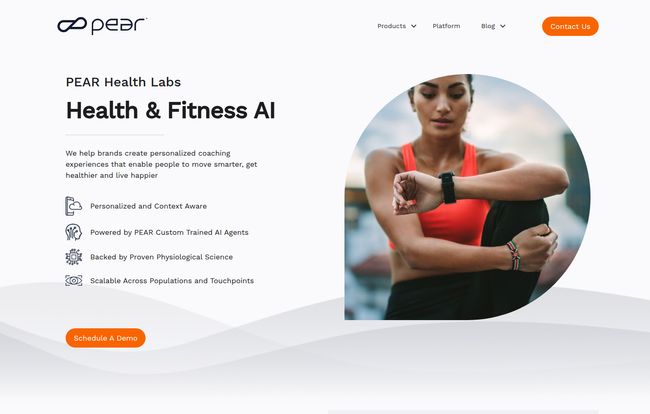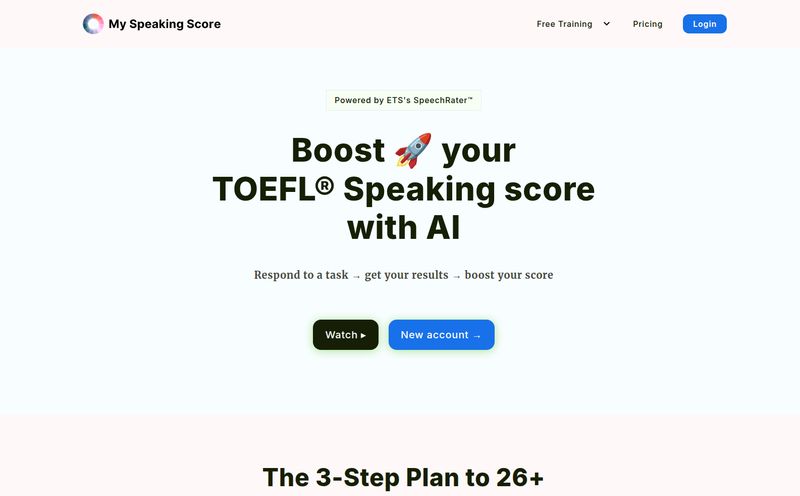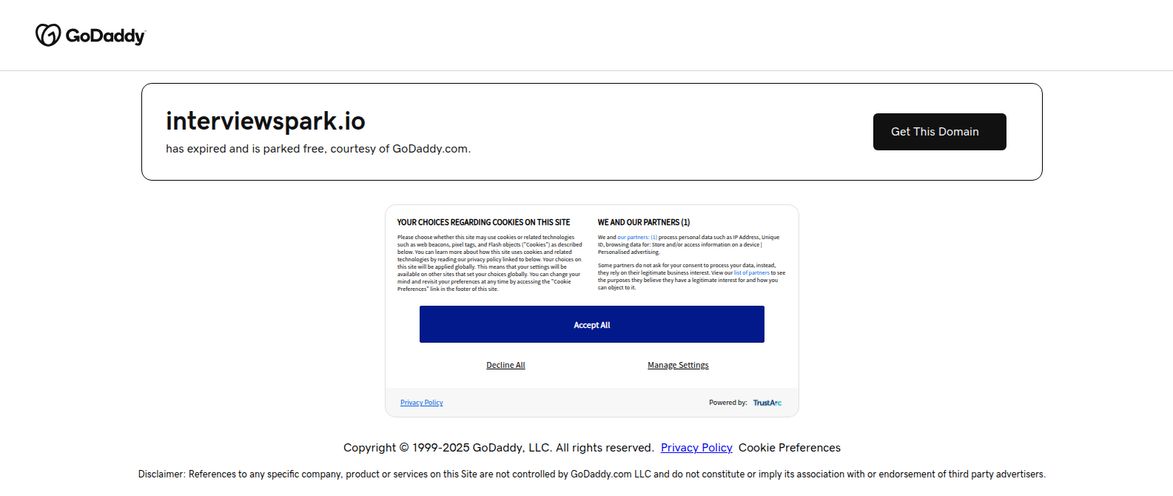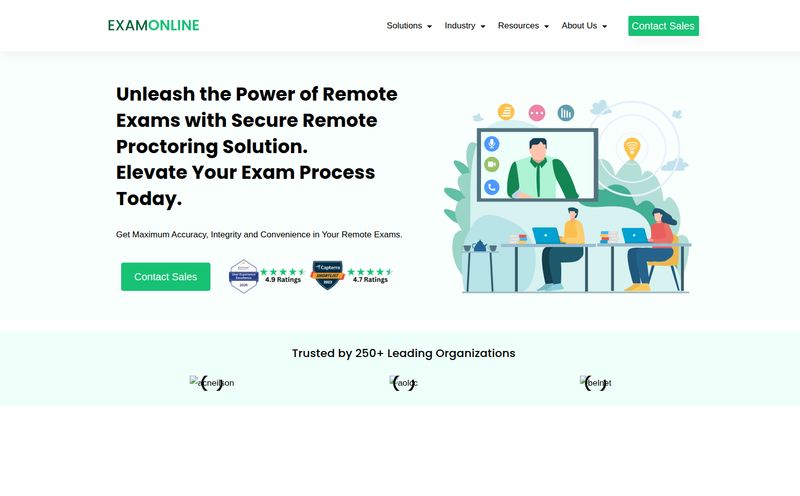We’ve all been there. You get a sudden burst of motivation—maybe it’s a new year, a looming vacation, or you just saw a picture of yourself from a weird angle. You declare, “This is it! I’m getting in shape!” You download a slick-looking fitness app, maybe even pay for the premium version. It gives you a cookie-cutter workout plan. You follow it for a week, maybe two. Then, life happens. You have a terrible night's sleep, a stressful day at work, or you just don't feel like doing 50 burpees. The app doesn’t care. It just sends you a passive-aggressive push notification. Before you know it, the app is buried in a folder on your phone, a digital monument to good intentions.
It’s a cycle I’ve seen a thousand times, both personally and in the industry. The problem isn’t usually motivation; it's the one-size-fits-all approach. That’s why when I stumbled across PEAR Health Labs, my ears perked up. They’re not just building another fitness app. They’re building the brain behind the fitness app, and it’s a brain that actually listens to your body.

Visit PEAR Health Labs
So, What on Earth is PEAR Health Labs?
Think of it this way. A standard fitness app is like buying a t-shirt off the rack. It mostly fits, but it might be too tight in the shoulders or too loose around the middle. PEAR Health Labs is like getting a bespoke, custom-tailored suit. It’s designed for a perfect fit because it’s made from your exact measurements.
PEAR isn't really a single product you download from the App Store. It's a B2B platform—a powerful, AI-driven engine that other companies can build their own coaching solutions on top of. They provide the hyper-personalized, adaptive coaching technology for everything from corporate wellness programs to preventative health platforms. Their mission, as they put it, is to “remove the guesswork” from health and fitness, and I’m here for it.
The Tech That Powers the Personalization
Okay, so how does this magic work? It’s not magic, it’s data. And lots of it. This is where it gets interesting for tech geeks like me. PEAR’s platform integrates directly with wearables and other sources of biometric feedback. We’re talking your Apple Watch, Garmin, Whoop strap—any device that tracks things like:
- Heart Rate & Heart Rate Variability (HRV)
- Sleep patterns and quality
- Activity levels and calories burned
- VO2 Max
Their AI, backed by what they call “proven physiological science,” takes all this data and does something brilliant with it. It doesn’t just give you a static plan. It builds a dynamic one that adapts in real-time. Had a rough night with the baby? The AI sees your low sleep score and might swap your high-intensity interval training for a recovery walk or some light yoga. Crushing your goals and feeling great? It’ll nudge the difficulty up to keep you challenged. This is the core of adaptive training, and it’s what sets it apart from the static PDFs and generic video playlists we're used to.
Who is This Actually For?
While I'd love a consumer version of this for myself, PEAR is playing a bigger game. Their primary focus is on businesses and organizations looking to implement high-level wellness solutions. It really breaks down into a few key areas.
Corporate Wellness Gets an Upgrade
Let's face it, most corporate wellness programs are... a little lame. A discounted gym membership and a monthly newsletter about hydration doesn't really move the needle. PEAR allows companies to offer a genuinely personalized wellness benefit that adapts to each employee, whether they're a marathon runner or just trying to hit 5,000 steps a day. It’s scalable and, because it's data-driven, can actually show a real return on investment through improved employee health and reduced burnout.
The Brains for Other Health Brands
This is a huge one. A fitness brand or even a healthcare provider might have a great community and a strong brand, but building this kind of complex AI from scratch is a massive undertaking. PEAR offers them the chance to integrate this powerful AI training intelligence directly into their own existing platforms. It’s a classic “white-label” solution that lets them offer cutting-edge features without a decade of R&D.
A Glimpse at Preventative Health
On their site, there’s a testimonial from the CEO of EWHIP (Early Warning Health Intervention Platform). This is fascinating stuff. By analyzing trends in biometric data, the system can potentially identify health issues before they become major problems. A sudden, sustained spike in resting heart rate or a drop in HRV could trigger an alert, prompting someone to check in with a doctor. This moves beyond just fitness and into genuine, proactive healthcare.
The Good, The Bad, and The 404 Page
No tool is perfect, and as an SEO, I've seen my share of over-hyped platforms. So, I always look at things with a healthy dose of skepticism. Here’s my honest breakdown.
| What I Genuinely Like | What Gives Me Pause |
|---|---|
| Hyper-Personalization is a Game-Changer. This isn't just about asking your age and weight. It's about adapting to your daily physiological reality. That's a huge leap forward. | It's Data-Hungry. The system is only as good as the data you feed it. For it to work its magic, users need to be consistently wearing a tracker. Not everyone is into the "quantified self" life. |
| It's Built on Actual Science. They emphasize their foundation in physiological science, which gives the AI's recommendations a lot more credibility than some random "fitness influencer" plan. | Potential for a Learning Curve. For the coaches and trainers implementing this, there might be a period of adjustment to trust the AI and learn how to best integrate its suggestions. |
| Incredibly Scalable. The ability to offer this level of personalized coaching to thousands of people at once is a massive advantage for large organizations. | What's the Price Tag? There's no pricing page. I even went looking for one and, well, I hit a 404 error. A very human moment for a high-tech company, which was kind of charming, actually. It means pricing is entirely custom and you have to schedule a demo to get the details. |
My Final Take on PEAR Health Labs
So, is it the real deal? In my professional opinion, yes. PEAR Health Labs is tackling the biggest failure point of digital fitness: the lack of true personalization and adaptability. They’re not just creating content; they’re creating intelligence. For any large-scale organization in the health, wellness, or fitness space, this is a platform that should be on your radar. It represents a shift from static instruction to a dynamic, data-driven conversation with your own body.
It's not a magic pill, and it relies on user adoption of wearables. But it’s a powerful, promising step in the right direction. It's making a big bet that the future of health is personal, and I think that’s a bet that’s going to pay off.
Frequently Asked Questions
How does PEAR Health Labs differ from other fitness apps like MyFitnessPal or Strava?
The main difference is the adaptive AI coaching. While apps like Strava are great for tracking and community, and MyFitnessPal is for logging food, PEAR’s technology creates workout and wellness plans that dynamically change day-to-day based on your body's biometric data from wearables. It's a proactive coach, not just a passive tracker or logger.
What kind of data does PEAR's platform use?
It primarily uses biometric data from popular wearables. This includes heart rate, Heart Rate Variability (HRV), sleep data, activity levels, and other key physiological metrics to understand your body's state of readiness and strain.
Can I use PEAR Health Labs as an individual?
Not directly, at least not right now. PEAR Health Labs is a B2B (business-to-business) platform. This means they partner with companies, health providers, and fitness brands who then offer the personalized coaching experience to their employees, members, or customers.
How much does PEAR Health Labs cost?
There's no public pricing information available. Since their solutions are tailored for larger organizations and can be integrated in different ways, pricing is custom. You need to contact their team and schedule a demo to get a quote based on your specific needs.
Is my personal health data safe with a platform like this?
This is a valid and important question for any health tech. While PEAR Health Labs itself would adhere to data privacy standards, the ultimate responsibility also lies with the company implementing the platform (e.g., your employer). It’s always smart to review the privacy policy of the specific service you're using.
A Healthier, Smarter Future
It's always exciting to see technology being used in a way that can genuinely improve lives. Moving past the generic and into the truly personal is the next frontier for digital health, and PEAR Health Labs is clearly one of the companies leading the charge. It’ll be fascinating to see which brands adopt this technology and how it shapes the wellness industry in the years to come.
References and Sources
- PEAR Health Labs Official Website
- WIRED Guide to Fitness Trackers (For general context on wearables)



